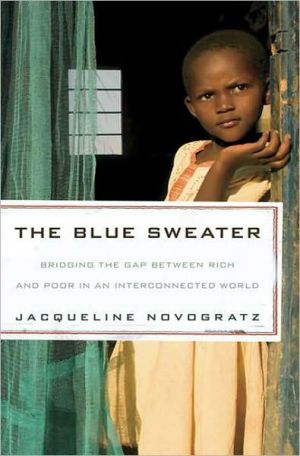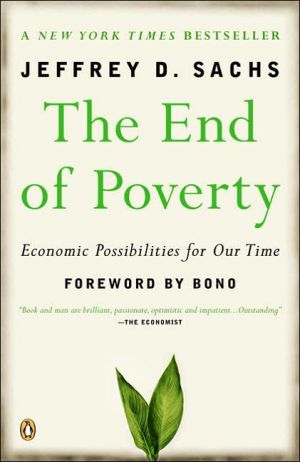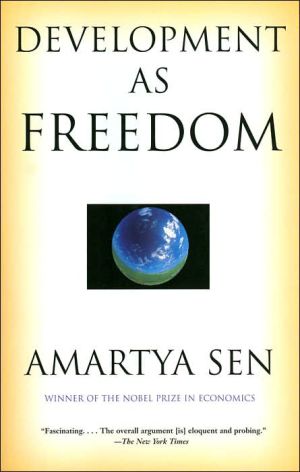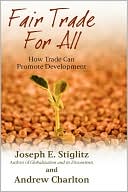Just Give Money to the Poor: The Development Revolution from the Global South
Amid all the complicated economic theories about the causes and solutions to poverty, one idea is so basic it seems radical: just give money to the poor. Despite its skeptics, researchers have found again and again that cash transfers given to significant portions of the population transform the lives of recipients. Countries from Mexico to South Africa to Indonesia are giving money directly to the poor and discovering that they use it wisely—to send their children to school, to start a...
Search in google:
* Argues strongly for overlooked approach to development by showing how the poor use money in ways that confound stereotypical notions of aid and handouts* Team authored by foremost scholars in the development fieldAmid all the complicated economic theories about the causes and solutions to poverty, one idea is so basic it seems radical: just give money to the poor. Despite its skeptics, researchers have found again and again that cash transfers given to significant portions of the population transform the lives of recipients. Countries from Mexico to South Africa to Indonesia are giving money directly to the poor and discovering that they use it wisely – to send their children to school, to start a business and to feed their families.Directly challenging an aid industry that thrives on complexity and mystification, with highly paid consultants designing ever more complicated projects, Just Give Money to the Poor offers the elegant southern alternative – bypass governments and NGOs and let the poor decide how to use their money. Stressing that cash transfers are not charity or a safety net, the authors draw an outline of effective practices that work precisely because they are regular, guaranteed and fair. This book, the first to report on this quiet revolution in an accessible way, is essential reading for policymakers, students of international development and anyone yearning for an alternative to traditional poverty-alleviation methods. Publishers Weekly In recent years, the Global South (nee "the third world") has embraced a system of cash transfers directly to the poor, as opposed to top-down government aid, to foster human development. As directors at Brooks World Poverty Institute at the University of Manchester, experts Barrientos and Hulme, along with journalist-researcher Hanlon (Do Bicycles Equal Development in Mozambique?), dissect the growing trend in a number of countries, including China, Mexico, India, Brazil, Indonesia, and South Africa. The inherent problem with such programs, including how to target recipients and how to overcome prejudice against the poor, are discussed in detail, complete with charts, tables, and extensive notes. Though cash transfers do not automatically reduce inequalities-typically, they amount to no more than 1 percent of GDP-they can change conditions on the ground level: "a beneficiary in rural Mexico explained that with money from the grant, 'We saved 600 pesos ($50) to buy wood and the other materials for building a chicken coop, and with what was left we bought a few chickens." Though dry, this primer on the failure of past aid efforts and the promise of a bottom-up approach reveals the rapidly evolving ways in which the Global South is finding a foothold. Copyright © Reed Business Information, a division of Reed Elsevier Inc. All rights reserved.
Illustrations viiForeword ix1 Introduction 12 From Alms to Rights and North to South 153 Cash Transfers Today 274 Eating More—and Better 535 Pro-poor Growth: Turning a dollar;1 Grant into $2 Income 696 To Everyone or Just a Few? The Targeting Dilemma 877 Identifying Recipients 1018 Co-responsibility and Services: The Conditionality Dilemma 1259 Cash Transfers Are Practical in Poor Countries 14310 The Way Forward 165Background and Research Data 183Acknowledgments 185Bibliography 187Index 205About the Authors 215
\ Publishers WeeklyIn recent years, the Global South (nee "the third world") has embraced a system of cash transfers directly to the poor, as opposed to top-down government aid, to foster human development. As directors at Brooks World Poverty Institute at the University of Manchester, experts Barrientos and Hulme, along with journalist-researcher Hanlon (Do Bicycles Equal Development in Mozambique?), dissect the growing trend in a number of countries, including China, Mexico, India, Brazil, Indonesia, and South Africa. The inherent problem with such programs, including how to target recipients and how to overcome prejudice against the poor, are discussed in detail, complete with charts, tables, and extensive notes. Though cash transfers do not automatically reduce inequalities-typically, they amount to no more than 1 percent of GDP-they can change conditions on the ground level: "a beneficiary in rural Mexico explained that with money from the grant, 'We saved 600 pesos ($50) to buy wood and the other materials for building a chicken coop, and with what was left we bought a few chickens." Though dry, this primer on the failure of past aid efforts and the promise of a bottom-up approach reveals the rapidly evolving ways in which the Global South is finding a foothold. \ Copyright © Reed Business Information, a division of Reed Elsevier Inc. All rights reserved.\ \








